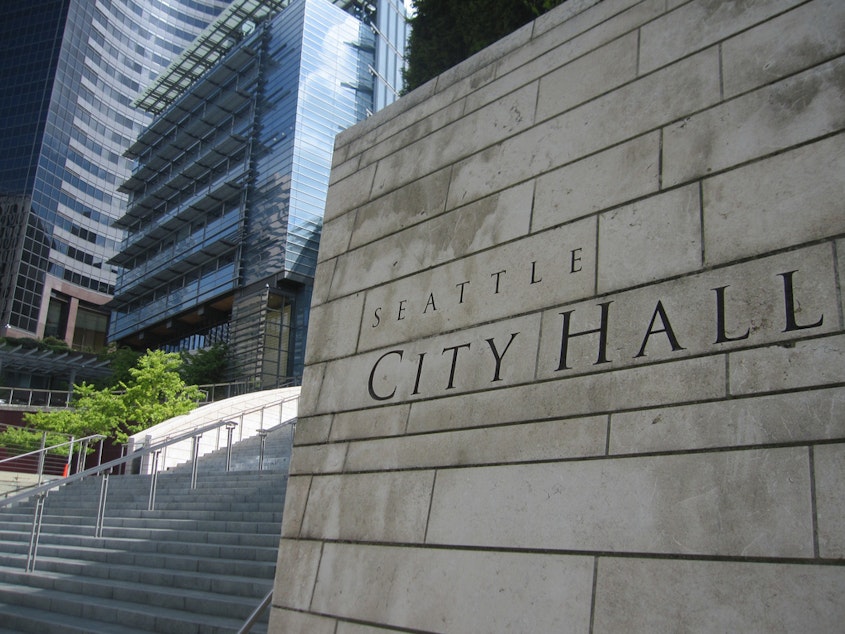New report outlines changing relationship between Seattle and tribal governments

In May of this year, the City of Seattle held its first Tribal Nations Summit since 1855. That’s when tribal representatives were coerced into signing the Treaty of Point Elliott.
On Wednesday, the City of Seattle released a report about what happened at that summit, and laid out the commitments the city is making to better work with tribal governments.
Luther “Jay” Mills was a participant in the summit.
"I think it was a great gesture on Mayor Harrell's part, and I think he wanted his staff to understand more about the local tribes and tribes at the state of Washington," Mills said.
Mills is a Suquamish tribal member. He serves on the Suquamish Tribal Council and is an ambassador for the tribe’s economic agency, which is called Port Madison Enterprises.
He’s also a member of Seattle’s new Indigenous Advisory Council.
The council will advise the mayor, the Seattle City Council, and city departments on policies, budgets, programs, services, and projects directly affecting Indigenous populations.
But centuries of mistrust, coercion, and violence in the U.S. government’s relationship with Native tribes won’t be corrected with a single city-level committee. Mills said that, even though he’s honored to be on the council, he often feels like an intruder in city hall.
"I'm coming across the water, so I feel like an outsider," he explained. "And it's frustrating, you know, that the city of Seattle is named after your great leader and yet you feel like an outsider."
That feeling of exclusion is part of what made the Tribal Nations Summit so monumental. For the first time, representatives and elected leaders from 11 federally recognized tribal nations, and six urban Indian organizations, met with City of Seattle officials, including Mayor Bruce Harrell and City Council President Debora Juarez.
Mills said the summit was mainly focused on hearing from the tribal representatives as they discussed topics ranging from homelessness to green energy to food sovereignty.
Yesterday, the City of Seattle released a report about what happened at that summit.
"The report highlights 23 different commitments, different priorities that the City of Seattle wants to follow through with some of the tribes and Urban Indian Organizations in the region," explains KUOW Race & Identity Reporter Gustavo Sagrero.
Sagrero said much of the report is focused on treaties, and how city affairs, such as zoning, and city policy, align with treaty commitments.
"Big emphasis here basically is government-to-government relationships and making sure that they're working in tandem together, and they're respecting each other's sovereignty," he said.
Sagrero said one example of treaty obligations is fishing rights. The Treaty of Point Elliot said that local tribes have the right eat and fish in the Salish Sea. But the degradation of environmental ecosystems have led to reduced fish stocks.
The summit wasn't just with tribal governments. It was also with local Urban Indian Organizations (UIO). Sagrero said conversations around UIO priorities focused on housing and equitable access to health care.
Donnie Stevenson, the vice chairman of the Muckleshoot Indian Tribe, told Sagrero that he feels like this [summit] is a new page in history, a way of moving beyond land acknowledgments, when a Western organization acknowledges that they are working and living on stolen Indigenous land, to actual action.
Sagrero noted that, while this report signals that the city wants to change how it engages and builds relationships with Indigenous people in the area, "the city of Seattle government is so big that a lot of these policies are going to take a little while to trickle down."






